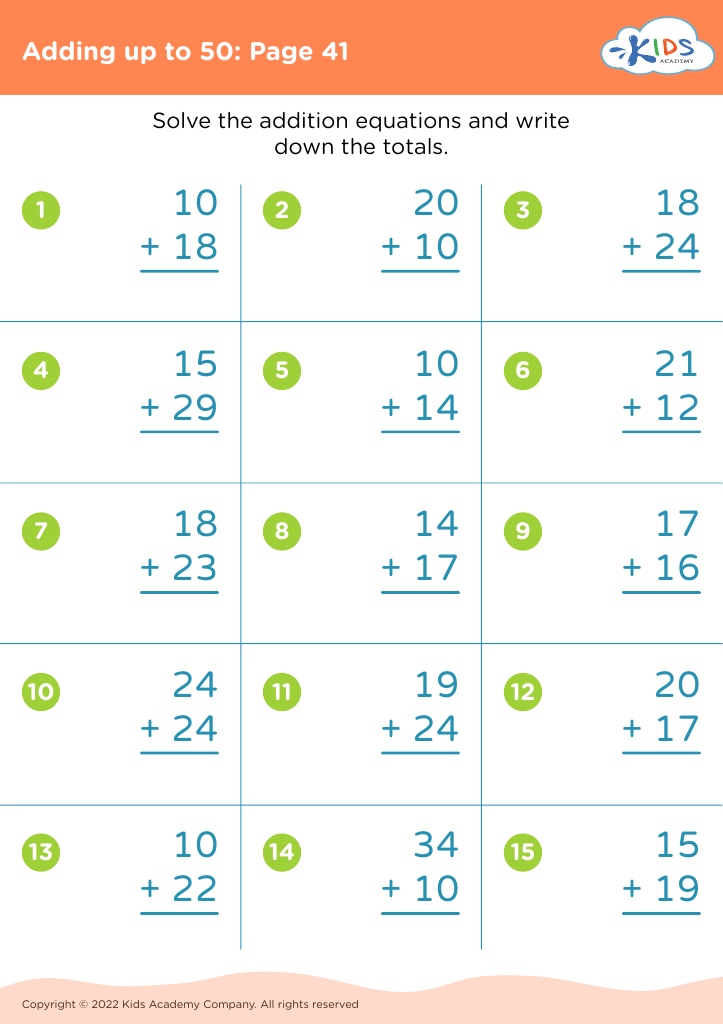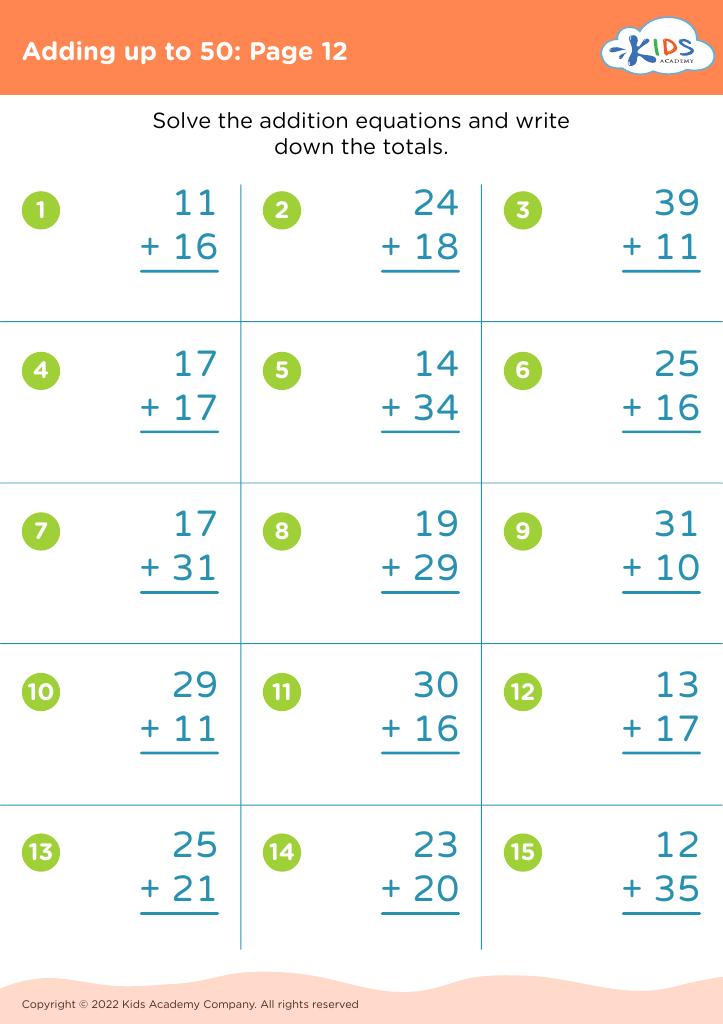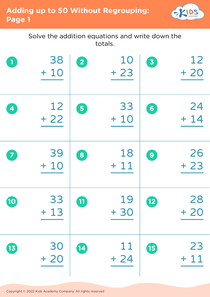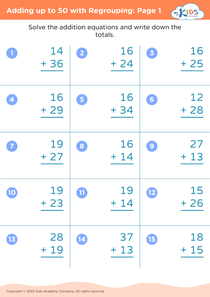Counting practice Adding up to 50 Misc Worksheets for Ages 5-8
5 filtered results
-
From - To
Discover our "Counting Practice Adding up to 50 Misc Worksheets for Ages 5-8" at Kids Academy! Perfectly designed for young learners, these engaging worksheets provide fun and interactive ways to enhance counting and addition skills. Children will enjoy colorful exercises that help them master adding numbers up to 50, fostering both confidence and a love for math. With our variety of captivating activities, students can develop critical thinking and problem-solving skills. Accessible and easy to use, these worksheets are ideal for both classroom and home learning. Equip your child with the essential math foundation they need to succeed!
Counting practice and adding up to 50 for children aged 5-8 is crucial for their early mathematical development and lays the foundation for more advanced mathematical skills. At this age, children are developing their numeracy skills, which are just as fundamental as literacy skills for their overall academic success and everyday life.
Firstly, counting and basic addition exercises help children understand number concepts, patterns, and the relationships between numbers. These skills are essential for solving more complex mathematical problems later on. For example, ability in these basics supports future learning in multiplication, division, fractions, and eventually algebra.
Secondly, practicing these skills can bolster a child's cognitive development, improving their problem-solving abilities, logical thinking, and reasoning skills. Activities that involve counting and simple mathematics can improve concentration, attention span, and memory.
Moreover, confidence in early math skills can positively impact a child’s self-esteem. As children experience success and mastery over counting and addition, they build a positive relationship with learning and are more likely to approach new challenges with enthusiasm and persistence.
Lastly, strong early numeracy skills are linked to better performance in other subjects. Parents and teachers should invest time in these practices because they provide children with a crucial toolset for broader academic and life success.



















